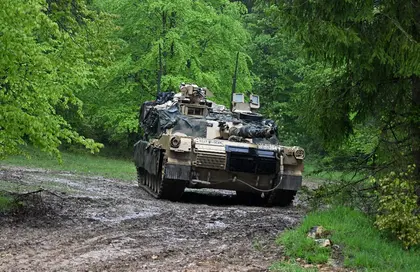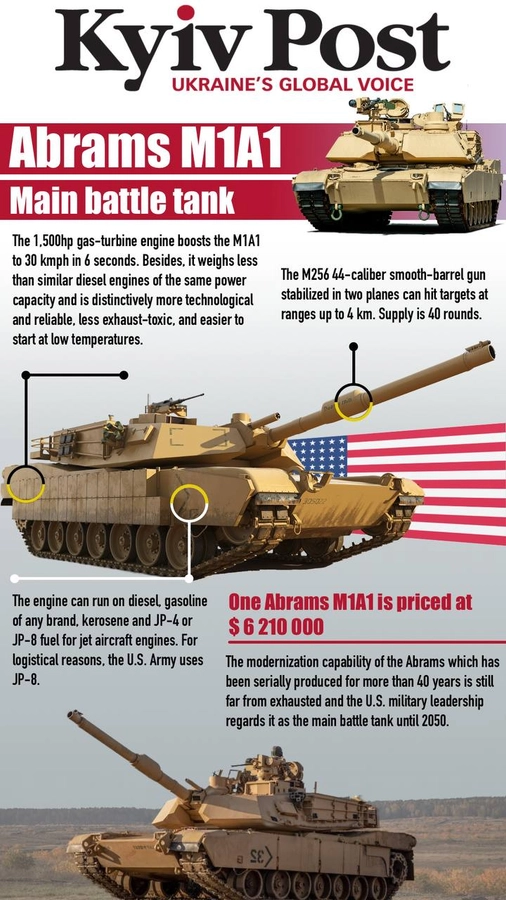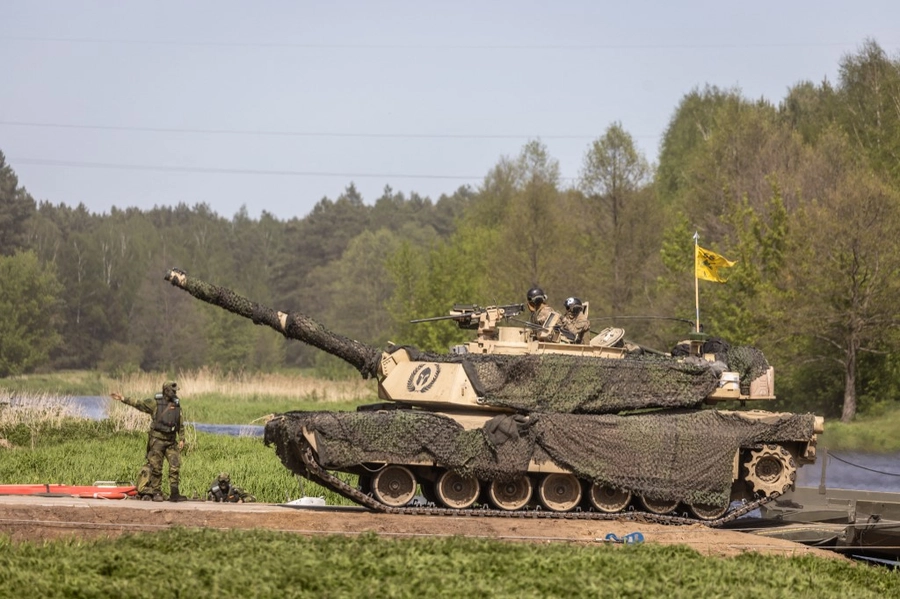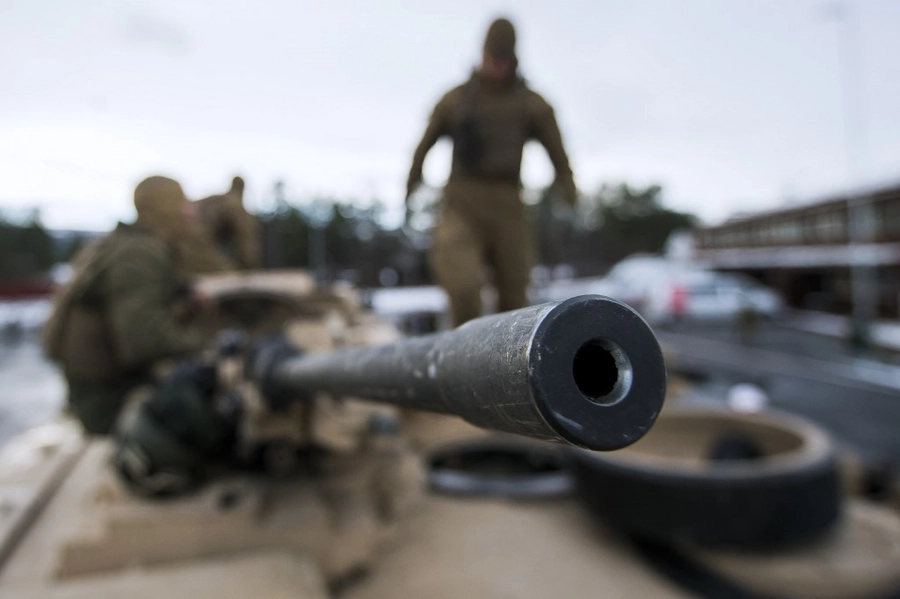Back in May, US Secretary of Defense Lloyd Austin said maximum effort was being exerted to speed up the transfer of Abrams tanks direly needed by Ukraine.
"We are doing everything possible to accelerate the delivery of these tanks, and early fall is a projection. We have moved several tanks to the training field for the Ukrainians to start training. By the time the exercise is over, the tanks will be available for use," Austin told the Senators.
JOIN US ON TELEGRAM
Follow our coverage of the war on the @Kyivpost_official.
It’s now early fall and although the Abrams still aren’t in Ukraine, they are expected to arrive any day now.
How soon the Abrams will arrive in Ukraine doesn’t only depend on their being ready for use, but also on the training of Ukrainian crews and maintenance personnel and the preparedness of the necessary infrastructure.
The US Department of Defense has decided to send an older model of the M1A1 from the Army reserves, which can be prepared for sending more quickly instead of the previously promised M1A2s.
The main difference between the basic versions of the M1A2 and the M1A1 is a more powerful armor protection package and modern electronics. However, the FEP [Firepower Enhancement Program, increasing all weather, day and night target acquisition and engagement range] and AIM-SA [Abrams Integrated Management – Situational Awareness] versions of the M1A1, which are currently in service with the U.S. Army, have undergone significant modernization, which partially brought them to the M1A2 level.

Kyiv Charges Generals for Failure to Defend Kharkiv Region During Russia’s 2024 Offensive
The tanks received a new main gunner’s sight with an improved Block I 2nd generation thermal imager (FLIR, forward looking infrared).
The fire control system has been updated to use the new M829A3 [heavy armor-piercing] and M1028 [tungsten fragment anti-personnel] 120mm tank rounds. The tank commander also received a new Stabilized Commander’s Weapon Station (SCWS).
The A1 and A2 are actually different versions of the same tank that have undergone parallel modernizations. In practice, the M1A1 SA and M1A1 FEP versions could be compared to the M1A2 SEPv2 which was produced in the 2010s.
Regular U.S. Army Abrams modifications received the Blue Force Tracking (BFT) tracking systems providing unit commanders with current information on the location of tanks on the battlefield relative to friendly forces via data link.
Most likely, it will be dismantled before being sent to Ukraine, as was the case with the digital units for the M777 howitzers.
The armor containing depleted uranium will also most likely be dismantled because this type of armor is a secret which the U.S. does not disclose even to its closest allies.
One of the most notable peculiarities of the Abrams is its massive multilayer armor. The tank is protected from cumulative or subcaliber armor piercing projectiles with combined armor – special ceramic tiles sandwiched between two thick metal sheets.
A US Abrams tank is seen as troops from Poland, USA, France and Sweden take part in the DEFENDER-Europe 22 military exercise on May 19, 2022. Wojtek RADWANSKI / AFP
It’s not known yet which version of the M1A1 will be sent to Ukraine. The Pentagon press secretary, Brig. Gen. Pat Ryder said that 31 used “bodies” of M1A1s would be repaired and modernized with the support of USAI [Ukraine Security Assistance Initiative], for which General Dynamics would be paid $400 million.
This means the M1A1s are likely to be substantially upgraded and different from the M1A1SA/FEP versions. There might even be a separate “Ukrainian” version as the U.S. is known to often practice developing customized modifications, not just for tanks but for other weapons systems, including fighter aircraft such as the F-16.
Power plant and transmission
The excellent mobility of the Abrams is ensured by the Honeywell AGT 1500 gas-turbine engine and the Allison X-1100-3B automatic gearbox with four forward and two reverse gears.
Its power to mass ratio of 24.4 hp/ton impressively surpasses that of the Т-72B3 tank which is a mere 18 hp/ton. It’s advertised top speeds are 72 km/h on-road and 48 km/h off-road.
The battlefield experience of the Ukrainian forces using NATO-standard tanks in their counteroffensive has undeniably proven their high combat efficiency and crew safety.
According to Forbes, Ukraine has thus far lost only five of 71 Leopard 2 tanks it received. About 10 have been damaged and are being repaired in EU countries. These figures testify to the high reliability and repairability of Western tanks.
Importantly, Leopard 2s have been used to break through Russian defenses, and such operations are known to be very challenging to any armored vehicles, with heavily mined fields and roads within Russian artillery’s range hampering and often completely obstructing the movement of Western tanks.
Now, 31 Abrams tanks will likely give the Ukrainian forces some advantage in chosen sectors of the offensive.
US Marines prepare their M1 Abrams tank to take part in an exercise to capture an airfield on November 1, 2018. Jonathan NACKSTRAND / AFP
Armament and munitions
The United States has also announced supplies of shells with depleted uranium to Ukraine. So far, Ukraine has received shells of this type from the UK.
Depleted uranium is purified to contain only the U-238 isotope (half-life 4.5 billion years), removing the more radioactive U-235 used in nuclear weapons (half-life only 159,000 years). Uranium has the highest atomic weight of the primordially occurring elements, with a density about 70 percent higher than that of lead and slightly lower than tungsten.
Thanks to extreme density of depleted uranium, such shells have a much higher armor piercing capacity, enabling them to destroy any armored vehicles.
The Abrams M1A1 and the German Leopard 2A4 have the same 120mm guns and subsequently nearly the same firepower. The Abrams fires M829A3 armor piercing rounds with a depleted uranium core which can pierce 700-mm-thick armor at ranges up to 2,000 m.
Such impressive characteristics threaten even Russia’s most advanced tanks, such as Т-72B3 protected by Kontakt-5 and Relikt dynamic armor.
Besides the main gun, the Abrams is armed with three machineguns two of which are mounted on the turret: a 12.7mm machinegun by the commander’s hatch and a 7.62mm machinegun by the gunner’s.
The third machinegun, called “coaxial,” is synchronized with the main gun. At short ranges, the trajectory of its rounds is almost identical to that of the projectile fired from the main gun, which makes it a perfect instrument for quick and accurate aiming.
The Armed Forces of Ukraine (AFU) are looking forward to using Abrams tanks in offensive operations against Russia's Т-90Мs and Т-72B3s, relying on their strong armor and high firepower.
You can also highlight the text and press Ctrl + Enter













